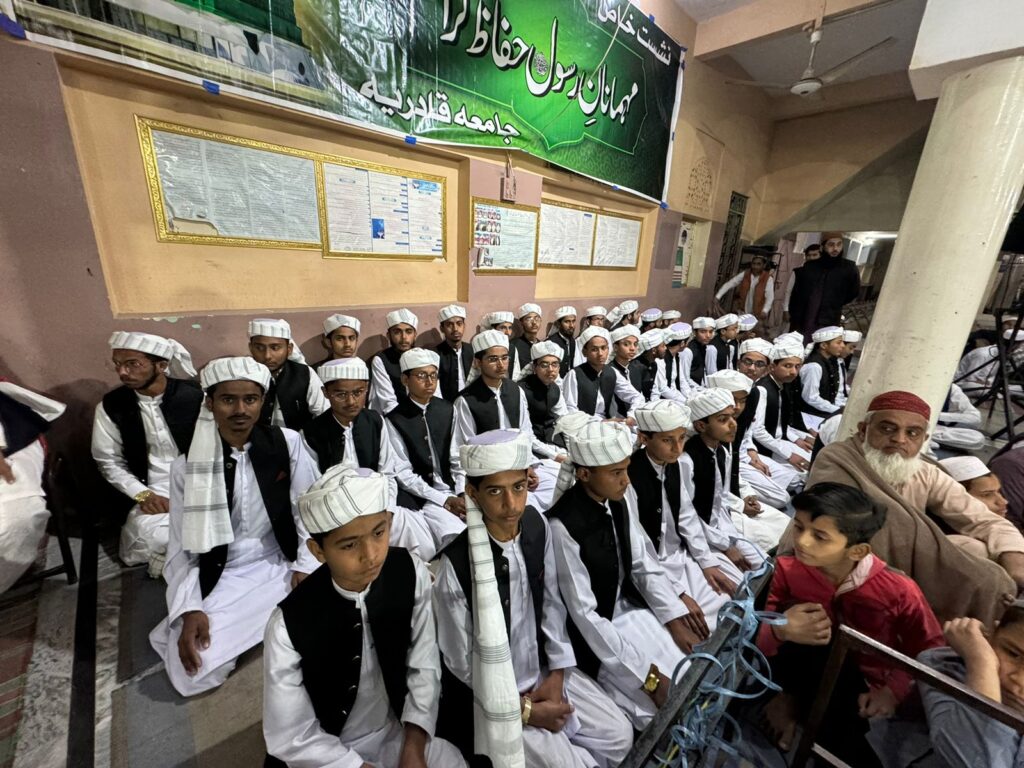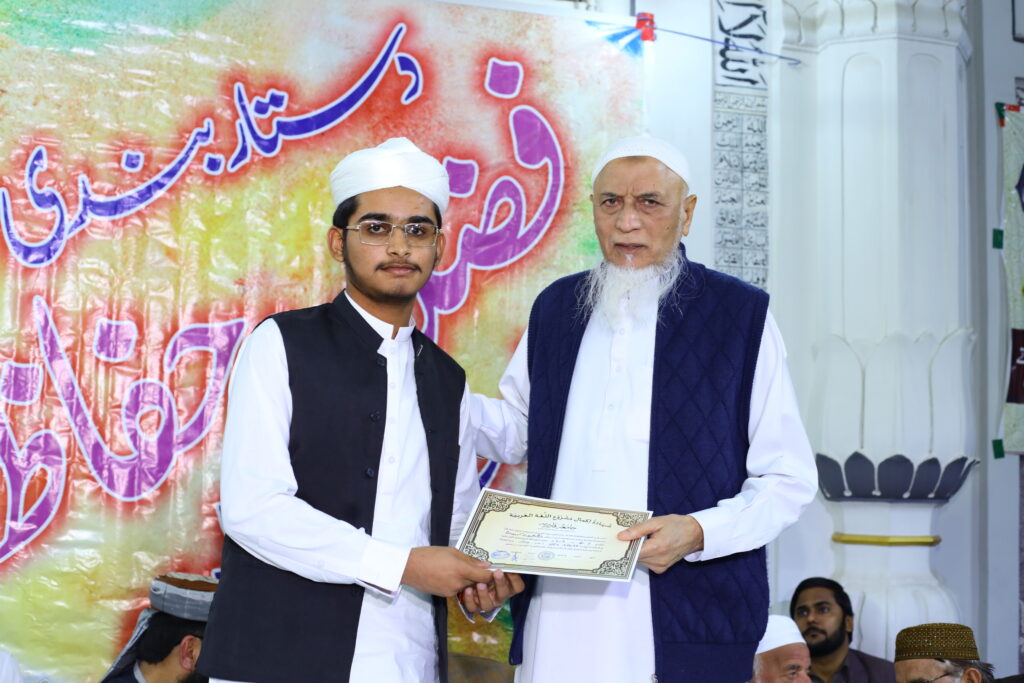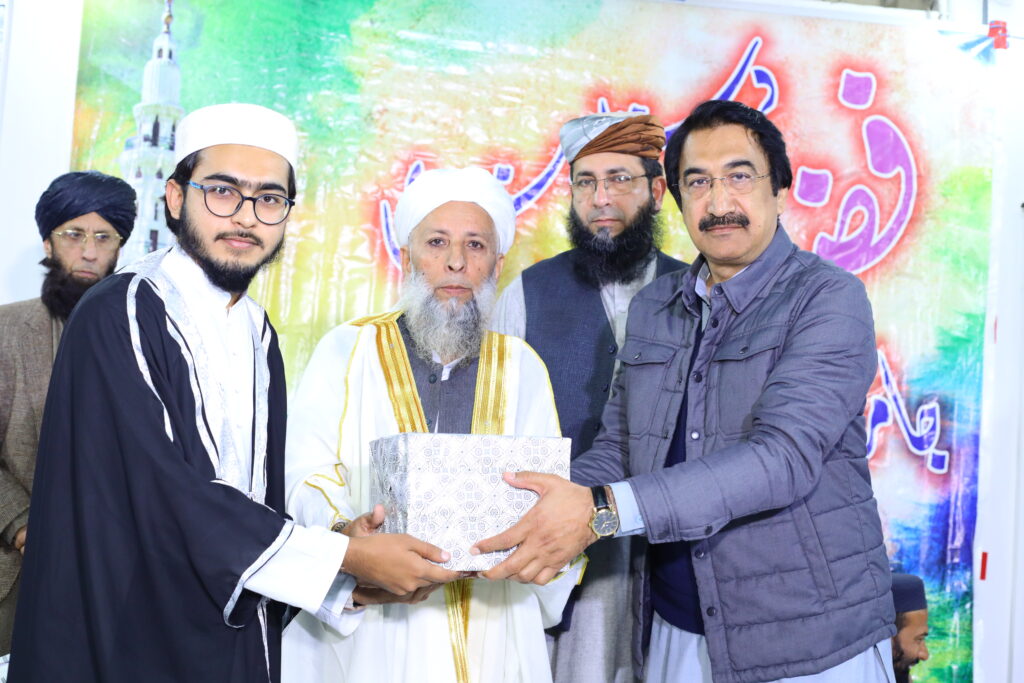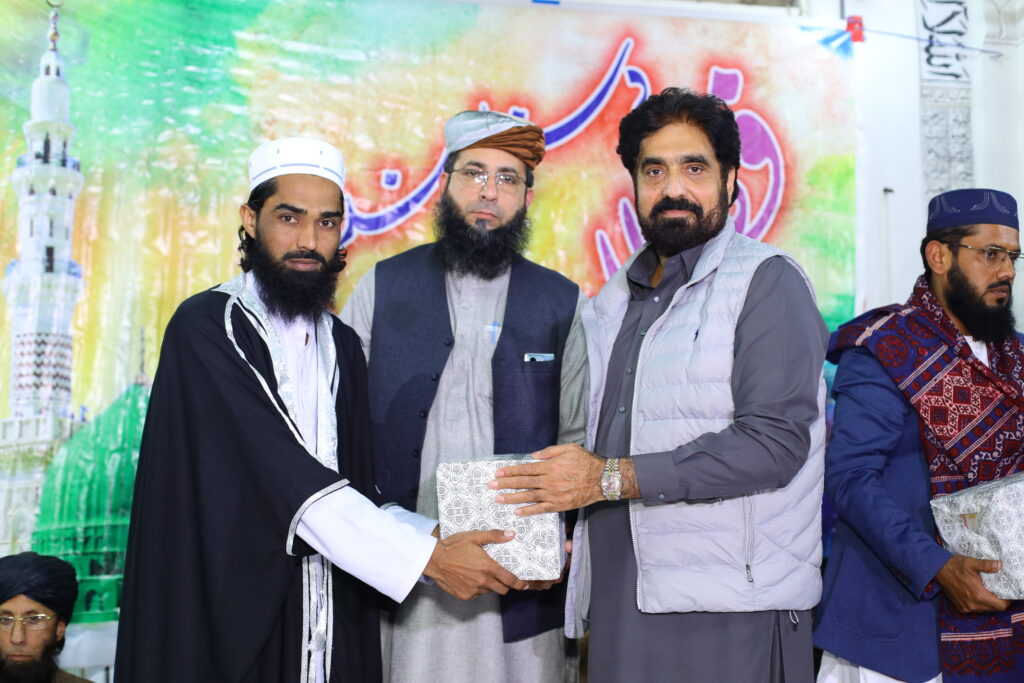Discover the timeless wisdom of Islamic scholarship through Dars-e-Nizami — a journey from knowledge to spiritual excellence
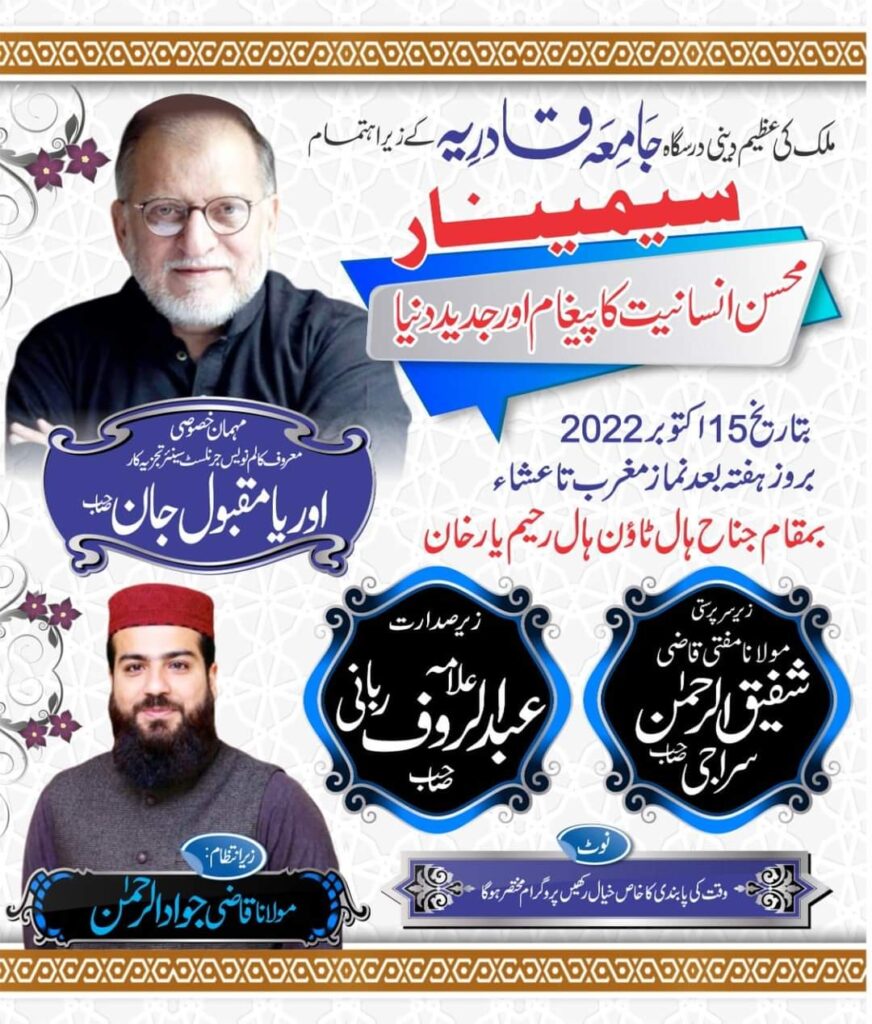
Dars-e-Nizami is a classical Islamic curriculum that has been taught in madrasas for more than 300 years. It was developed in the Indian subcontinent by a great scholar, Mulla Nizamuddin Sahlawi (rahmatullah alaih), and is named after him.
This system is designed to create well-educated Islamic scholars (Ulama) who have deep knowledge of the Quran, Hadith, Fiqh (Islamic Jurisprudence), Tafsir (exegesis), and other Islamic sciences.
At Jamia Qadaria, we proudly follow this respected tradition with dedication, spiritual training, and a deep focus on moral values.
The goal of Jamia Qadaria is not only to teach books but to develop complete Islamic personalities. We aim to build students who:
Understand the true message of Islam
Follow the path of piety, sincerity, and good character
Can serve as imams, teachers, muftis, and preachers
Are equipped to answer modern-day questions with Islamic guidance
The Dars-e-Nizami course at Jamia Qadaria is divided into multiple levels. Each level builds knowledge step by step:
Basic Arabic reading and writing
Tajweed (Correct Quran recitation)
Islamic manners (Akhlaq) and basic Fiqh
Basic Islamic beliefs (Aqaid)
Arabic grammar: Sarf and Nahw
Persian language (Farsi)
Basic Tafsir and Hadith
Stories of Prophets and Islamic history
